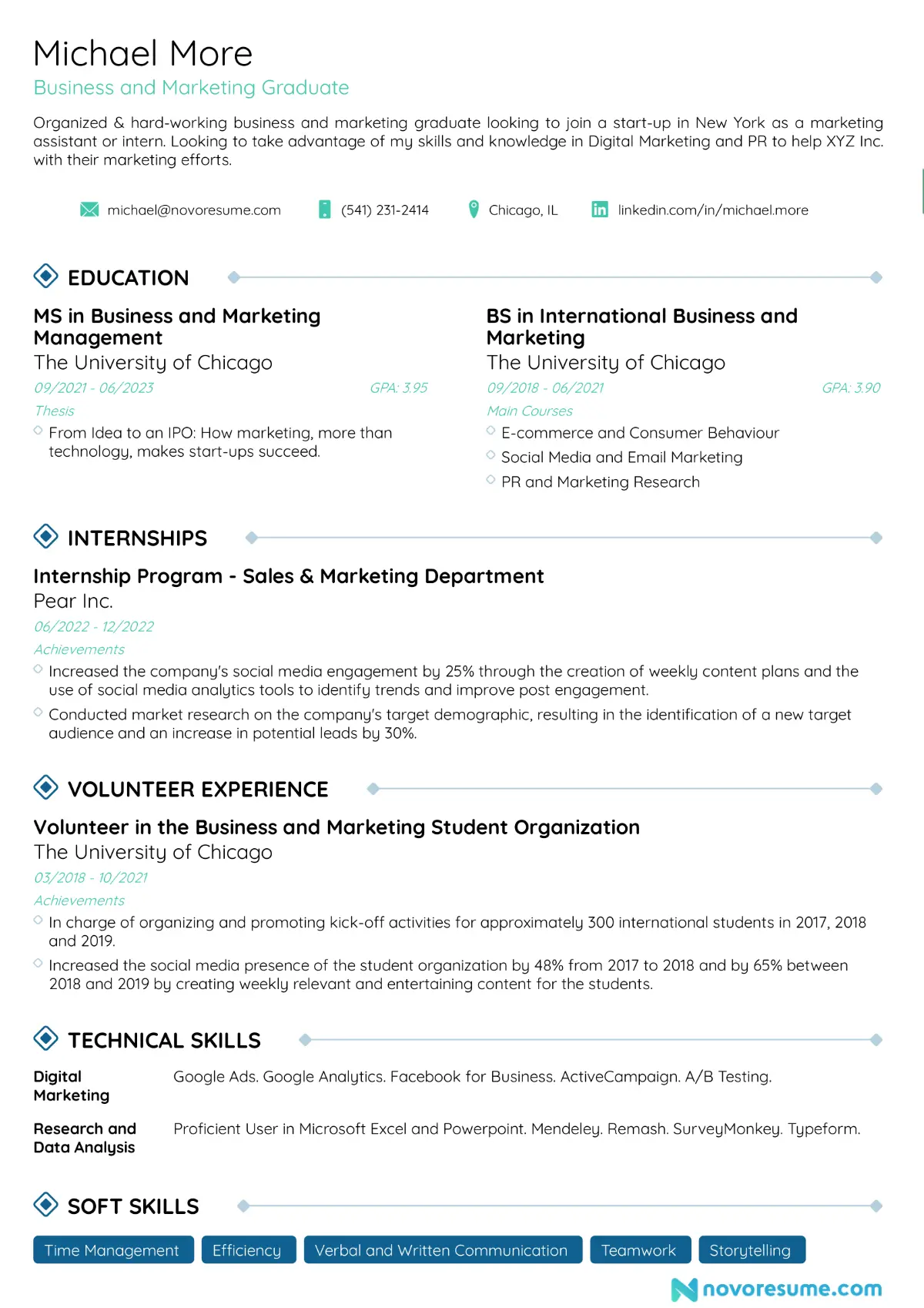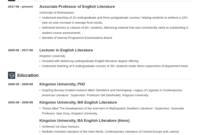Landing your first big job after graduation can feel like an uphill battle, especially when every job description seems to demand years of experience you simply haven’t had the chance to accumulate yet. It’s a common paradox: you need experience to get a job, but you need a job to get experience. This hurdle can be incredibly frustrating and might even make you doubt your capabilities or the value of your degree.
But here’s the good news: you absolutely can create a compelling CV that captures the attention of recruiters, even if your professional background is limited. The key is knowing how to reframe your academic journey, extracurricular activities, volunteer work, and personal projects into valuable assets that demonstrate your potential, transferable skills, and genuine enthusiasm for the role. This article will guide you through crafting a standout resume designed specifically for recent graduates with minimal or no work history.
Crafting Your Impactful Graduate CV When Starting Out
When you’re building a graduate CV template no experience, your primary goal is to shift the focus from what you lack to what you genuinely bring to the table. Recruiters understand that fresh graduates won’t have extensive corporate histories, so they’re looking for different indicators of success: potential, transferable skills, eagerness to learn, and a strong work ethic. Think about every aspect of your university life or personal pursuits that required discipline, teamwork, problem-solving, or communication. These are the goldmines you need to unearth and articulate clearly.
Start with a powerful personal statement or profile. This short paragraph, typically 3-5 lines, sits right at the top of your CV and is your elevator pitch. It’s your chance to quickly summarize your career aspirations, key skills, and what makes you an ideal candidate. Instead of listing duties, focus on achievements and the impact you can make. For example, rather than saying “Studied X,” say “Highly motivated graduate with a strong analytical mind, eager to apply [specific skill] to contribute to [industry/role].”
Your education section becomes paramount. Go beyond just listing your degree and grades. Include relevant modules, major projects, dissertations, or research you conducted. Did you receive any academic awards or scholarships? Were you involved in any societies or student committees? These details showcase your commitment, intellectual curiosity, and ability to manage complex tasks. If a project involved teamwork, data analysis, or presentations, highlight those transferable skills.

Don’t underestimate the value of any work experience, no matter how informal. Part-time jobs, internships, volunteer roles, or even freelancing gigs are all opportunities to demonstrate responsibility, customer service skills, or time management. If you haven’t had formal employment, think about your extracurricular activities. Leading a sports team, organizing a charity event, or even tutoring a peer all involve skills that are highly valued in the workplace.
Key Sections to Prioritise on Your CV
* Personal Profile/Statement: Your concise and compelling introduction, outlining your ambitions and key strengths.
* Education: Detail your academic achievements, including relevant coursework, projects, and grades.
* Transferable Skills: A dedicated section or interwoven throughout, highlighting abilities like communication, problem-solving, teamwork, and digital literacy.
* Work Experience (if any): Even part-time or temporary roles; focus on duties and achievements.
* Volunteering & Extracurriculars: Showcase initiative, leadership, and soft skills gained outside of academics.
* Projects & Portfolios: Evidence of practical application of your knowledge, especially for creative or technical roles.
* Achievements & Awards: Any recognition for academic, sporting, or personal accomplishments.
Making Your No-Experience CV Shine Through Smart Strategies
To truly make your CV stand out, especially when competing against candidates with more traditional work histories, you need to be strategic in your approach. One crucial tip is to always tailor your CV to each specific job application. Generic CVs rarely succeed. Read the job description carefully, identify keywords and essential skills, and then weave those terms and concepts naturally into your personal statement, skills section, and descriptions of your experiences. This shows recruiters you’ve done your homework and genuinely align with their needs.
Quantify your achievements whenever possible, even if they seem minor. Instead of “Helped organize events,” try “Co-organized three university events for 100+ attendees, managing logistics and promoting participation.” Numbers add credibility and paint a clearer picture of your impact. Use strong action verbs at the beginning of your bullet points to describe your responsibilities and achievements, words like “developed,” “managed,” “created,” “analyzed,” or “collaborated.”
Pay meticulous attention to the formatting and presentation of your CV. A clean, professional, and easy-to-read layout is essential. Use a clear font, consistent spacing, and bullet points to break up text and make it scannable. Avoid overly flashy designs unless you are applying for a creative role where a unique design would be an asset. Remember, recruiters spend mere seconds scanning a CV initially, so clarity is paramount.
Finally, always proofread your CV multiple times before sending it. A single typo or grammatical error can undermine your professionalism and attention to detail. Ask a trusted friend, family member, or university career advisor to review it for you. A fresh pair of eyes can often spot mistakes you’ve overlooked. Consider applying for roles that offer internships, graduate schemes, or entry-level positions specifically designed for those starting their careers, as these opportunities are often more understanding of a lack of extensive work history.
Embarking on your career journey is an exciting time, and while the initial search for opportunities can feel daunting without a long list of previous jobs, remember that every successful professional started exactly where you are now. Your academic achievements, personal projects, and transferable skills are incredibly valuable and simply need to be presented effectively. Focus on showcasing your potential, enthusiasm, and eagerness to learn and grow within an organization. With a well-crafted CV that highlights your strengths and aligns with the roles you’re applying for, you are well on your way to securing that first impactful position.
